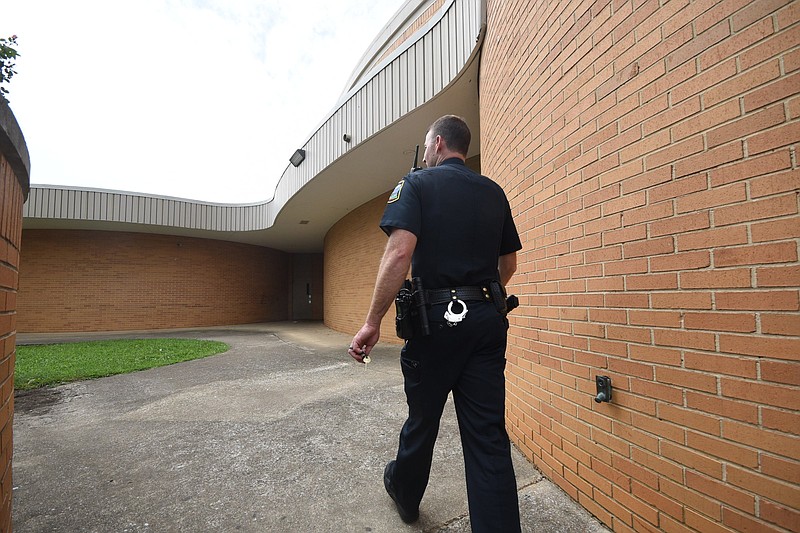We can appreciate Hamilton County Commissioner David Sharpe's desire to reallocate county money that currently pays for 27 school resource officers (SROs) to fund security officers for each of the district's 79 schools.
He wants to know, he told the newspaper last week, "there is someone that gets up every day and their priority is ensuring that our schools are as safe as they can be."
Optimally, every school would have an SRO, who is a trained and certified patrol deputy hired by the Hamilton County Sheriff's Office and assigned to a certain school through the HCSO's school resource officer unit. The SROs are state certified officers, have the authority to make arrests, and have training in suicide prevention and other safety measures for children.
Security officers, on the other hand, do not come with the sanctioning of the HCSO, have no arrest authority and may be retired law enforcement officers who may be certified by the Peace Officer Standards & Training Commission but do not perform the duties of a certified law enforcement officer.
The problem, as it is in so many issues, is money.
In 2018, when there were SROs at 29 Hamilton County schools and in the wake of the fatal shooting earlier that year at a high school in Parkland, Fla., Hamilton County Sheriff Jim Hammond said it would cost an additional $4 million annually to hire, train and pay for resource officers at the rest of the county's schools. That cost, undoubtedly, has increased.
Since then, in lieu of being able to hire SROs and in light of numerous SRO vacancies, the Hamilton County Board of Education voted to hire and train 10 private security officers.
Sharpe has proposed that the county move about $4 million for SROs from the HCSO budget for fiscal 2022 to the schools budget to hire a security officer for each school.
We feel that's not the right move for several reasons.
The first is that it assumes that one school is interchangeable for another - that the milieu at North Soddy Elementary is the same as it is for Lookout Valley Middle School, which is the same as it is at Brainerd High School. But the environment of each school is different, and the special characteristics of each school are things the SROs have special training to understand and deal with.
A second is that it assumes that a retired law enforcement officer, at best, and anyone who can be hired and trained, at worst, would be equal to the physical rigors and quick action that might be needed in a - heaven forbid! -life-and-death situation. And that those security officers, not only less trained but lower paid than an SRO, would be willing to put their lives on the line as trained officers are expected to do.
One only needs to remember Scot Peterson, the security officer who more than three years after the horrific 2018 event still faces 11 criminal charges including child neglect and negligence for not entering Marjory Stoneman Douglas High School in Parkland, Fla., to confront a school shooter who killed 17 students and faculty members. Peterson blames it on miscommunication.
A third reason is that 79 people (minus the 10 security officers already in place) will have to be hired and trained. Hiring that many in a job market where fast-food establishments can't find enough people when they pay upwards of $10 an hour to start will be daunting.
As it is now, school resource officers in Hamilton County are allocated first in high schools, then middle schools and then elementary schools. The chances for more unruly behavior increase with the age of the students, so the placement only makes sense.
But, as the world saw in horror in 2012 when 26 people (including 20 students) were killed in a school shooting at Sandy Hook Elementary School in Newtown, Conn., such incidents can happen anywhere.
We also believe more in-school situations can be diffused - perhaps leading to a lesser need for SROs - by hiring more school counselors.
In 2019, 27 of the Hamilton County district's 79 schools had a full-time school counselor. At the time, the district had a ratio of one counselor per every 612 students, much worse than the one per every 250 students recommended by the American School Counselor Association. Tennessee's Basic Education Program funding formula, at the time, paid for one counselor for every 500 elementary school students and one per every 350 secondary school students.
For now, the SROs are where they ought to be, and the goal should be to have an SRO or security officer, plus a school counselor, in every school as soon as possible. But let's not lose the advantage we have with those who are already trained and in place.
